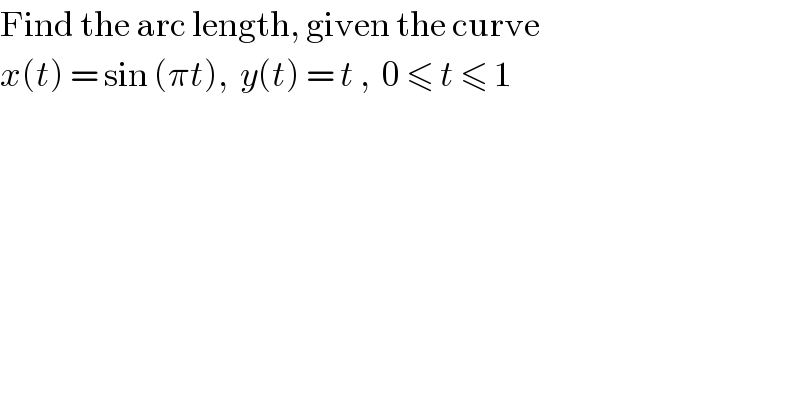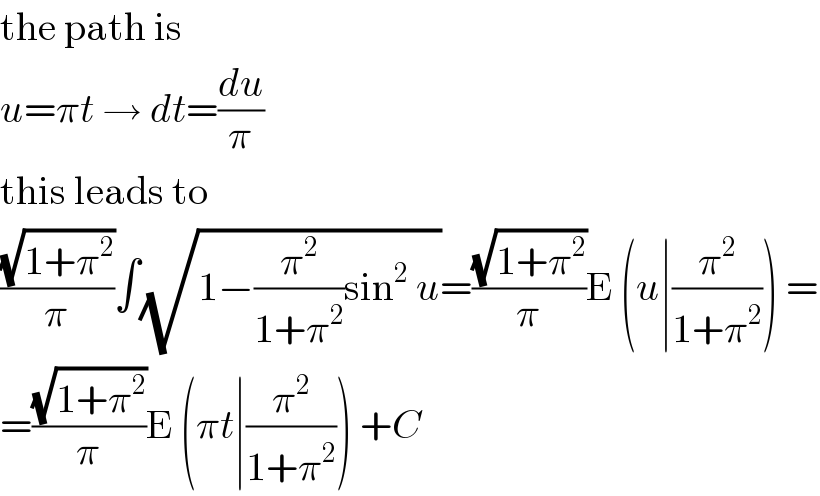
Question and Answers Forum
Question Number 68145 by Joel122 last updated on 06/Sep/19

Commented by Joel122 last updated on 06/Sep/19

Commented by MJS last updated on 06/Sep/19

Commented by MJS last updated on 06/Sep/19
https://en.m.wikipedia.org/wiki/Elliptic_integral
Commented by Joel122 last updated on 06/Sep/19

Commented by MJS last updated on 06/Sep/19

